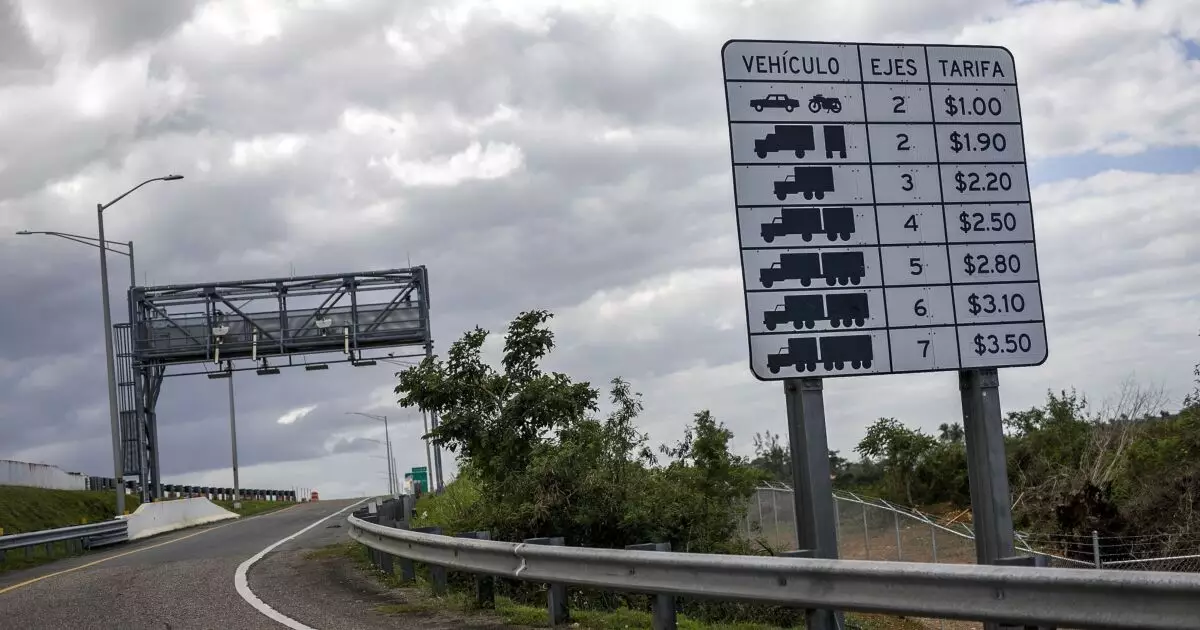In the wake of Puerto Rico’s financial crises, the territory is now pivoting toward a model that relies on public-private partnerships (P3s) to rejuvenate its infrastructure, specifically the toll road system. The recent agreement involving Puerto Rico Tollroads, LLC, and the issuance of $286.2 million in senior revenue bonds marks a significant step as the territory navigates the challenging waters of its economic recovery.
Public-private partnerships have become an increasingly attractive solution for governments facing budget constraints and economic obstacles. In Puerto Rico, the creation of Puerto Rico Tollroads, a subsidiary of the Spanish infrastructure giant Abertis Infraestructuras S.A., illustrates this trend. The government’s strategic decision to lease four key highways to a private concessionaire not only brings immediate financial relief but also lays the groundwork for future investments in infrastructure. By paying $2.85 billion upfront, the concessionaire was able to retire $1.24 billion in outstanding toll revenue bonds, effectively strengthening the financial standing of the Puerto Rico Highways and Transportation Authority (HTA).
This partnership structure resonates with similar transportation initiatives across the United States, where private sector funding plays a crucial role in revitalizing urban infrastructure. The bond’s BBB rating signifies a stable outlook, underlining the financial viability of the toll roads and the significance they hold for commuter traffic on the island.
Fitch Ratings has provided a thorough analysis of the financial underpinnings of this venture. The investment in senior revenue bonds emerges from a structured framework that incorporates private activity bonds, often utilized for projects with a public benefit. The innovative financing model not only enables Puerto Rico Tollroads to generate revenue through tolls on the four highways—PR-52/PR-18, PR-66, PR-53, and PR-20—but also provides a mechanism to adjust toll rates based on inflation and economic conditions.
However, while the financial health indicators paint an optimistic picture—highlighted by a projected minimum coverage ratio of 2.1 times—the possibility of future financial restructuring remains a concern. Potential “re-gearing” could lead to increased leverage, which might strain the project’s financial profile. Hence, while the partnership is poised for growth, vigilance is essential in managing the inherent risks associated with large-scale infrastructure projects.
Infrastructure’s Societal Impact
The implications of revitalizing Puerto Rico’s toll roads extend beyond mere financial metrics. They impact daily life, facilitating transportation for the territory’s residents and thereby influencing local commerce and accessibility. The recognition of the toll road network as an “essential transportation link” underscores the crucial role these roads play in bolstering economic activity within Puerto Rico. This P3 model allows for not only the maintenance and improvement of existing infrastructure but also potentially opens avenues for future enhancements that would further integrate the island into the larger economic framework.
Challenges Ahead
Despite the promising outlook offered by Fitch Ratings, the journey ahead is fraught with challenges. The volatility in Puerto Rico’s economy and fluctuating demographic trends could hinder consistent revenue generation from toll collections. Additionally, the overarching political landscape presents risks that could impact the operations of Puerto Rico Tollroads.
Moreover, the alignment of private interests with public good is critical to ensure that service delivery remains effective. Balancing profit motives with the obligation to provide reliable infrastructure poses ongoing challenges for stakeholders involved in this partnership.
The recent issuance of bonds to finance Puerto Rico’s toll roads embodies a pivotal moment in the territory’s recovery narrative. The use of public-private partnerships not only demonstrates a strategic approach to overcoming financial hurdles but also sets a precedent for similar initiatives in the region. As Puerto Rico navigates this complex landscape, continued focus on risk assessment, financial integrity, and public accountability will be vital in ensuring that this model serves the interests of both the territory and its constituents effectively.

